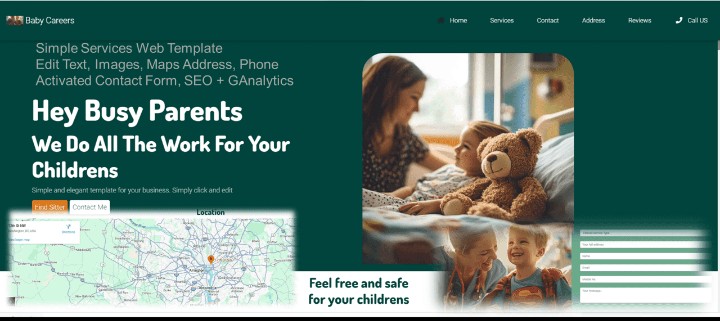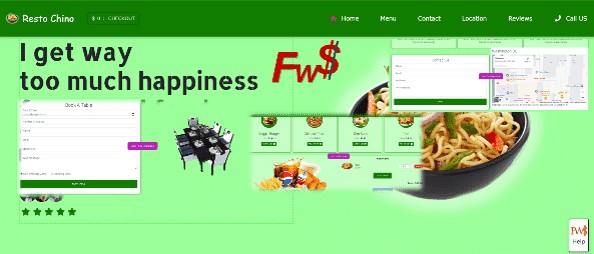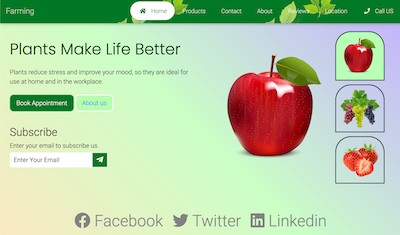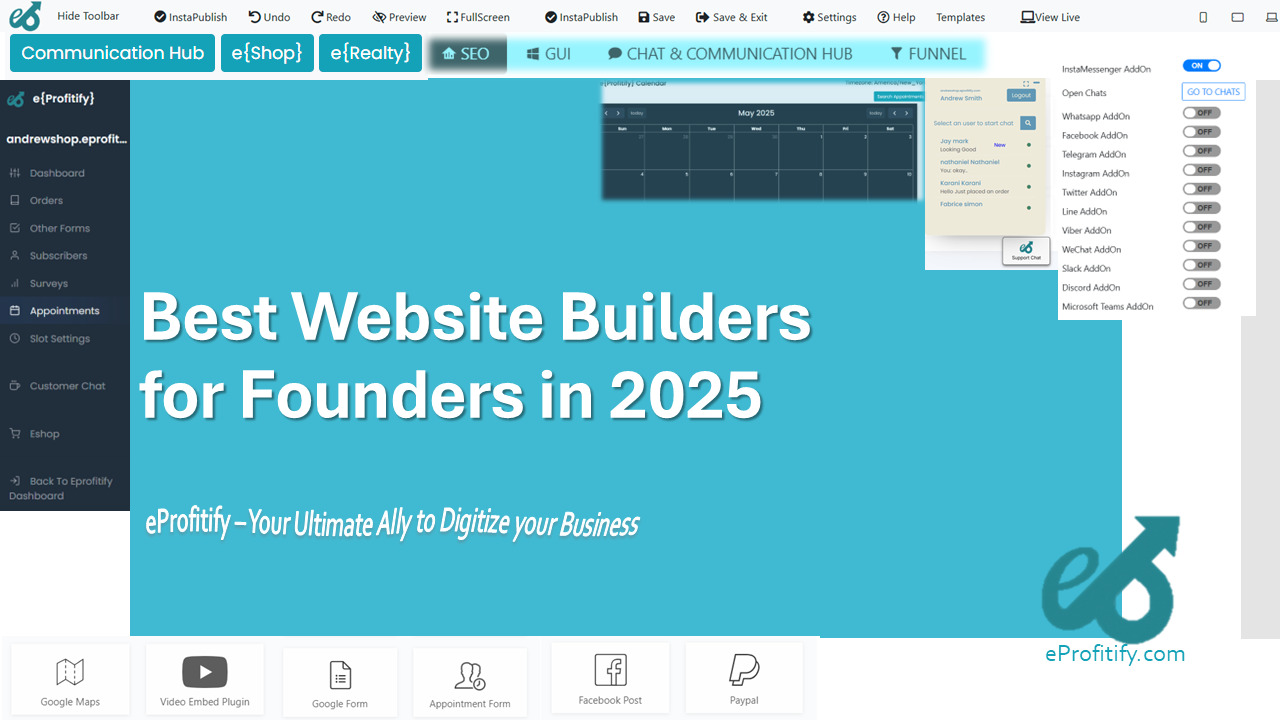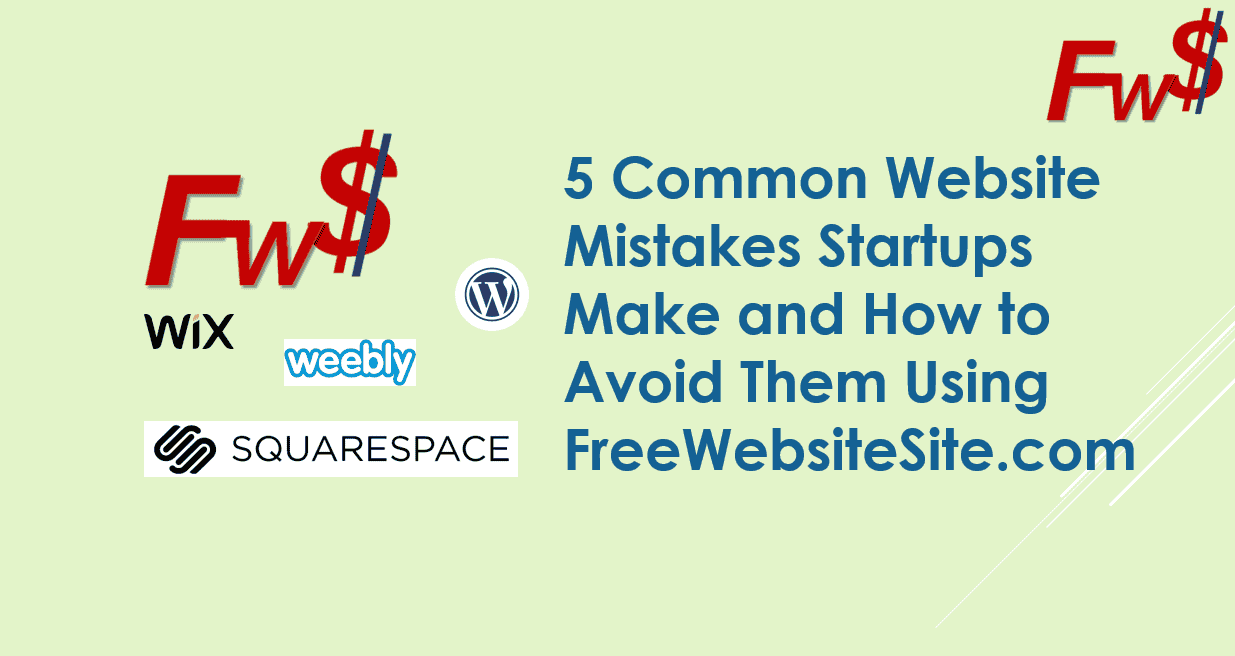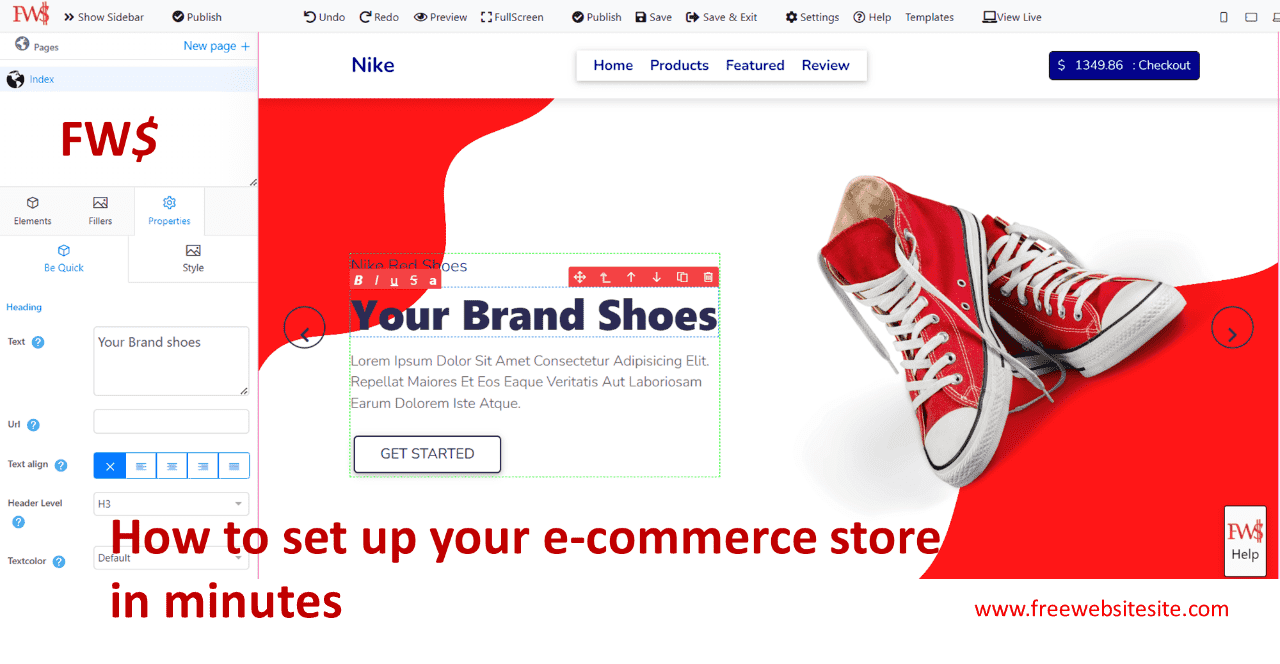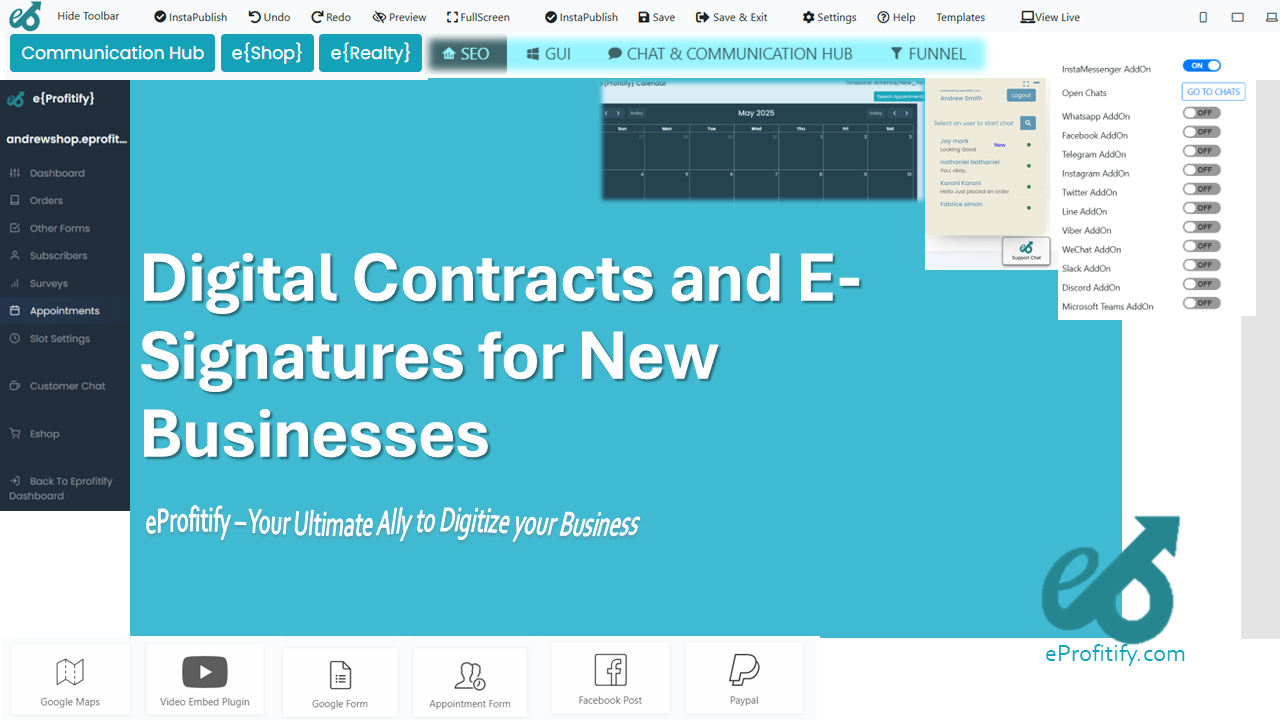How to Choose the Right Website Builder for Your Startup

How to Choose the Right Website Builder for Your Startup
In today’s digital-first economy, a website isn’t just a luxury—it’s a necessity. For startups, a well-designed website can serve as the foundation for building credibility, attracting customers, and scaling operations. According to a 2023 report by Statista, 48% of consumers cited website design as the top factor in determining a business’s credibility. With over 4.9 billion internet users globally (per Internet World Stats), the stakes for creating a professional online presence have never been higher.
But how do startups, often constrained by tight budgets and limited technical expertise, choose the right website builder? This guide breaks down the key considerations and highlights tools like Eprofitify, a leading website publishing and management platform, that can simplify the journey.
1. Assess Your Needs and Goals
Before diving into tools, clarify your startup’s objectives. Are you selling products (e-commerce), offering services, or building a portfolio? Your goals will dictate features you need. For instance:
- E-commerce startups require payment gateways, inventory management, and secure checkout.
- Service-based businesses might prioritize scheduling tools, CRM integration, or client portals.
- Content-driven sites need SEO tools and blogging capabilities.
Stat to consider: E-commerce sales are projected to hit $6.9 trillion globally by 2024 (eMarketer). If your startup falls in this category, prioritize builders with robust online store features.
2. Ease of Use
For non-technical founders, a user-friendly interface is critical. Look for drag-and-drop editors, pre-built templates, and intuitive dashboards. Platforms like Wix and Squarespace score high here, but newer tools like Eprofitify also offer low-code workflows tailored for startups.
Why Eprofitify shines: Its visual editor simplifies customization, while AI-powered design suggestions help users create polished sites in minutes.
3. Scalability
Startups grow fast—your website must keep up. A scalable builder adapts to increased traffic, product lines, or global expansion. For example, Shopify is preferred by 1.7 million merchants (BuiltWith) for scaling e-commerce, but consider Eprofitify for its modular architecture, allowing seamless addition of features like CRM or multi-language support as your startup evolves.
4. Feature Set
Here’s where differentiation happens. Prioritize platforms that bundle essential tools to avoid third-party app costs. Must-have features include:
- Mobile responsiveness: 58% of global web traffic comes from mobile devices (StatCounter).
- SEO tools: 68% of online experiences start with a search engine (BrightEdge).
- Analytics: Track user behavior to refine strategies.
Eprofitify’s standout features:
- Instant messaging: Engage visitors in real time.
- Appointment management: Ideal for consultants, salons, or healthcare startups.
- CRM integration: Manage leads and nurture customer relationships.
- E-commerce tools: Product listings, abandoned cart recovery, and tax calculators.
5. Customization and Branding
Your website should reflect your brand’s personality. Evaluate template libraries, font choices, and color schemes. While WordPress offers 11,000+ themes, smaller startups may find Eprofitify more efficient, combining aesthetic flexibility with pre-built industry-specific templates (e.g., SaaS, retail, or healthcare).
6. Security
Cyberattacks cost small businesses $25,000 on average, and 43% target small businesses (Verizon). Ensure your builder provides SSL certificates, GDPR compliance, and automatic backups. Eprofitify includes enterprise-grade security, reducing risks for data-heavy startups.
7. Pricing
Budget constraints are real for startups. Compare:
- Entry plans: Wix ($16/month) vs. Squarespace ($12/month).
- Mid-tier: Shopify ($29/month) for advanced e-commerce.
- Eprofitify: Transparent pricing starting at $19/month with no hidden fees, bundling hosting, CRM, and 24/7 support.
Pro tip: Avoid platforms charging extra for SSL or SEO tools—these should be standard.
8. Customer Support
When your site crashes at midnight, support matters. Look for 24/7 live chat, forums, or tutorials. Eprofitify offers priority support and an AI chatbot for instant troubleshooting, ensuring minimal downtime.
9. Third-Party Integrations
Your tech stack (email marketing, accounting, etc.) must sync smoothly. Eprofitify integrates with 1,000+ apps via Zapier, while WordPress relies on plugins (55,000+ available but often requiring coding).
10. Trial Periods and Exit Flexibility
Always test-drive a platform. Most offer 14–30-day free trials. Avoid vendor lock-in; ensure you can export data if switching builders later.
Why Eprofitify Stands Out for Startups
While giants like Shopify and WordPress dominate market share, Eprofitify has emerged as a leader for startups seeking an all-in-one solution. Its features align perfectly with the needs of modern businesses:
- Instant messaging: Reduce bounce rates by engaging visitors proactively.
- Unified dashboard: Manage appointments, sales, and customer data in one place.
- AI-driven insights: Optimize pricing or marketing strategies using predictive analytics.
Case in point: A 2023 Gartner report highlighted that startups using integrated tools like Eprofitify reduced operational costs by 30% compared to those juggling multiple platforms.
Common Mistakes to Avoid
- Overcomplicating design: Simplicity drives conversions.
- Ignoring mobile optimization: 73% of users abandon poorly mobile-optimized sites (Google).
- Skipping SEO: 75% of users never scroll past the first page of search results (HubSpot).
Final Thoughts
Choosing the right website builder is about balancing cost, features, and future-proofing. For startups aiming to streamline operations while maintaining a competitive edge, Eprofitify offers a compelling package with tools that grow as you do. By prioritizing ease of use, scalability, and integrated features—from CRM to e-commerce—you’ll build a website that’s not just functional but a growth engine for your startup.
In a world where 88% of consumers won’t return to a site after a bad experience (Kissmetrics), investing time in selecting the right platform isn’t optional—it’s foundational.
